
The standard foundation year program is the most popular among our students. It offers you the widest range of subject choices (choose from 13), helping you to enter all 10 Monash faculties. After successfully completing the standard program, you’ll have guaranteed entry into first year at Monash University.
Foundation Year is taught over two semesters. Each semester you’ll complete a minimum of four units, including English which is compulsory. You’ll also have the option to complete a bonus unit each semester which could help you increase your final score.
The MCD of Information Technology is the first step towards completing your Monash IT degree. IT is central to every industry – creating more efficient ways to work, engaging ways to reach customers, and establishing powerful ways to communicate. By studying IT, you’ll have the skills you need to succeed in the changing world of technology.
Our MCDs are in two parts: part 1 and part 2. In part 1, you’ll learn about the maths and science theory and practical skills you’ll need for University. In part 2, you’ll study the same subjects as first-year University students and develop your specialist knowledge of IT.
Our MCDs are in two parts: part 1 and part 2. In part 1, you’ll learn about the maths and science theory and practical skills you’ll need for University. In part 2, you’ll study the same subjects as first-year University students and develop your specialist knowledge of IT.
Assessments
This unit introduces programming fundamentals and the C++ language to students. The unit provides a foundational understanding of program design and implementation of algorithms to solve simple problems. Fundamental programming control structures, built in and complex datatypes and mechanisms for modularity will be presented in C++. This unit also places a focus on object-oriented design principles, using object-oriented design as a process for program design and problem solving. More advanced object- oriented programming topics such as inheritance and polymorphism will also be covered. Other C++ fundamentals such as pointers and the STL will be presented, as will implementations of algorithms and data structures used in problem solving.
This unit is an introduction to the techniques, frameworks and processes comprising 3D modelling and 3D imaging. Foundations of 3D aims to give students an understanding of 3D modelling by developing skills in 3D model creation for a variety of contexts, including 3D prototyping, 3D visualisation and 3D modelling for games and animation. Students will communicate their knowledge of 3D theory through the production of designs that demonstrate geometrical modelling, texture mapping, virtual lighting techniques, camera positioning and rendering procedures.
Functions and coordinate geometry: types of functions, composite functions, inverse functions, modelling of periodic phenomena with trigonometric functions, complex numbers. Differentiation and integration: concepts and techniques, applications to related rate of change and optimization problems, areas, volume and centre of mass. Vectors in two and three-dimensional space, application to motion and kinematics.
What is statistics and why is the study of statistics required in a business degree? Experts in statistics play an important role in modern business. In addition, everyone in a business-related job needs to be able to understand statistical discussion of issues and most need to be able to use descriptive in reports and presentations. ^MCD2080 Business Statistics is a compulsory unit if you want to study the Bachelor of Information Technology majoring in Information Systems.
This unit introduces software development and design using MATLAB, including data types and variables, structured programming, M-files and functions, numerical errors and uncertainty and the programming of numerical techniques. Numerical techniques covered include root finding, interpolation, linear and non-linear regression, numerical integration and ordinary differential equations.
Vector algebra and geometry: equations of lines and planes. Linear algebra: matrix operations, up to 3×3 systems of linear equations, eigenvalues and eigenvectors. Calculus: improper integrals, integration by parts. Sequences and series: fundamentals of convergence, Taylor series, use in error analysis. Ordinary differential equations: first order, second order with constant coefficients, repeated roots, simple non- homogeneous cases. Laplace transforms: elementary functions, inversion by tables; shifting; derivatives, applications to ODEs. Multivariable calculus: partial derivatives, gradient and directional derivatives, maxima and minima.
**MCD4500 Engineering Mathematics for Engineering is compulsory if you want to study a Bachelor of Computer Science. You may also be required to complete MCD4490 Advanced Mathematics dependent on the level of mathematics you entered the MCD of Information Technology.
This unit introduces students to the use of Information Technology (IT) in modern engineering practice. Students will learn an object-oriented approach to both computer systems and software engineering for solving engineering problems. Students will work in small teams to develop a mobile application that meets a contemporary need in engineering. The fundamental stages in the software development lifecycle will be introduced, including requirements analysis, design, implementing and verification. Students will use IT tools to support the engineering process.
The practice of engineering involves applying scientific and technical knowledge, common sense and experience to solving problems of practical significance for people. During this unit, you will learn about engineering practices by studying important engineering skills that are not covered in traditional mathematics, chemistry and physics courses, and will apply these skills to projects. Through the study of this unit, you will improve your knowledge of the IT and engineering professions, design and analysis, communication, ethics and economics.
The focus of this unit will be on the behaviour of functions and examining some of their applications to the real world. The way that functions will be introduced is by individually describing the characteristics of families of different function types (linear, polynomial, rational, exponential, logarithmic and trigonometric). The composition of functions through possible combination of different types of component functions will also be investigated. Other operations on functions such as transformations via shifting, scaling and reflection will be presented, along with the existence and meaning of inverse functions.
This unit introduces programming fundamentals and the Python language to students. The unit provides a foundational understanding of program design and implementation of algorithms to solve simple problems. Fundamental programming control structures, built in and complex datatypes and mechanisms for modularity will be presented in Python. Topics covered will include basic input and output, program control structures, basic data structures and modular program structure. Problem-solving strategies and techniques for algorithm development, iteration and recursion, algorithm efficiency and the limitations of algorithms will be introduced.
The unit introduces students to fundamentals of computer systems, networks and security. It provides basic knowledge of computer organisation and architecture, operating systems, networking architecture, technology and operation. It introduces the concepts of security goals for protecting common modern computer systems and communication networks from adversaries and the deployment of suitable countermeasures to achieve these goals.
This unit is designed to develop an understanding of how organisations are managed and to enable the application of analytical skills to a range of managerial and organisational issues.
This unit introduces fundamental discrete mathematics topics including combinatorics, sets, relations and functions; methods of logic and proof, especially proof by induction; probability theory, Bayes’ theorem; recursion; recurrence relations; trees and other graphs. It establishes the mathematical basis required for studies in Computer Science and Software Engineering.

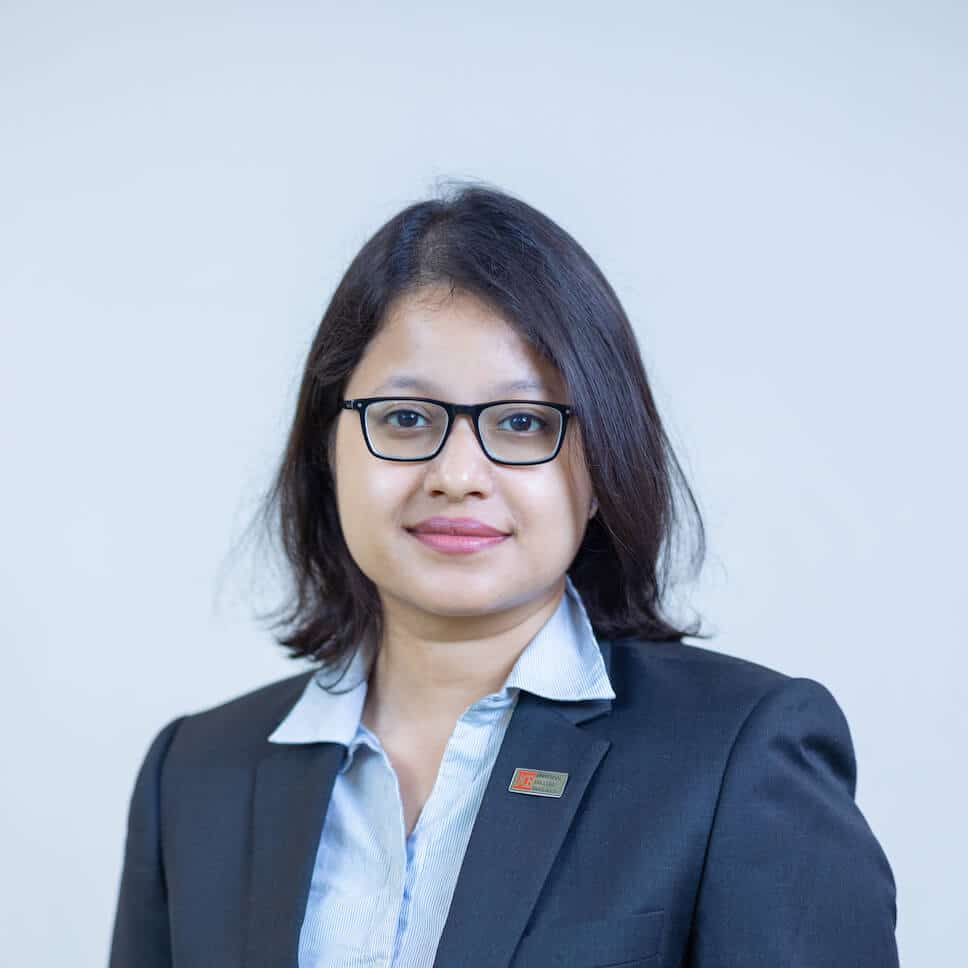
Lecturer
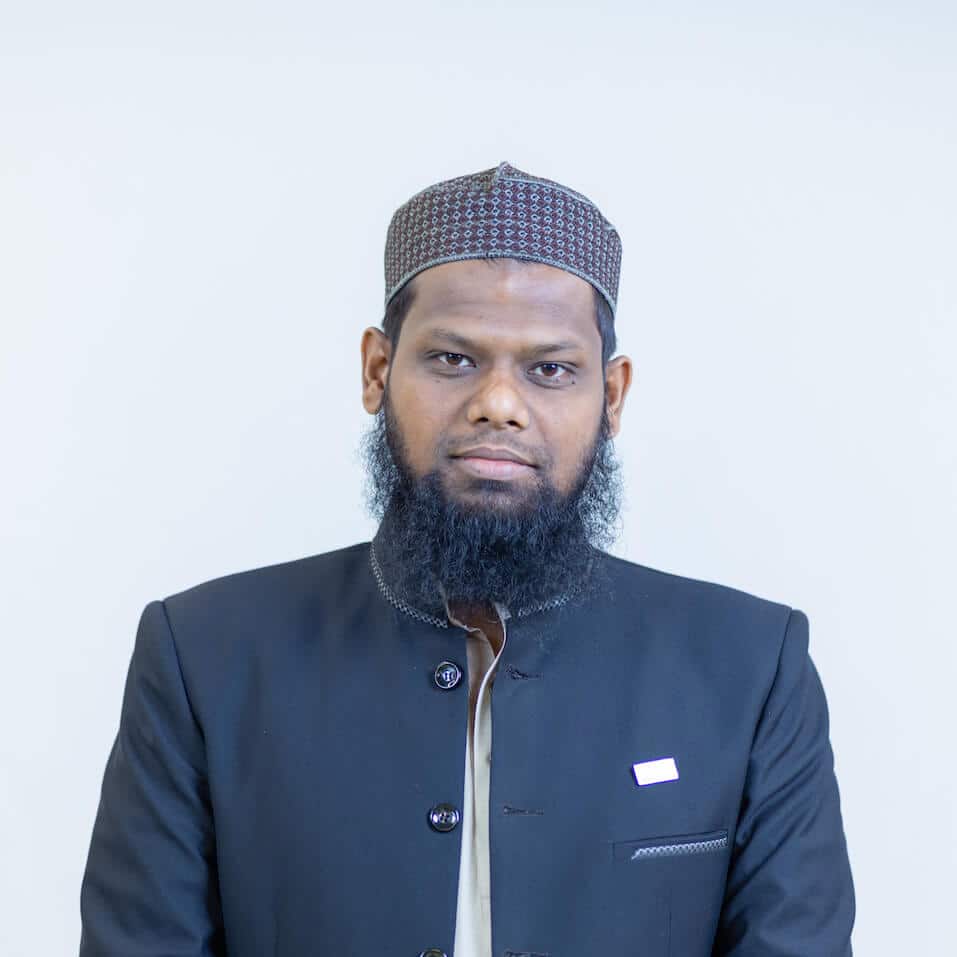
Lecturer
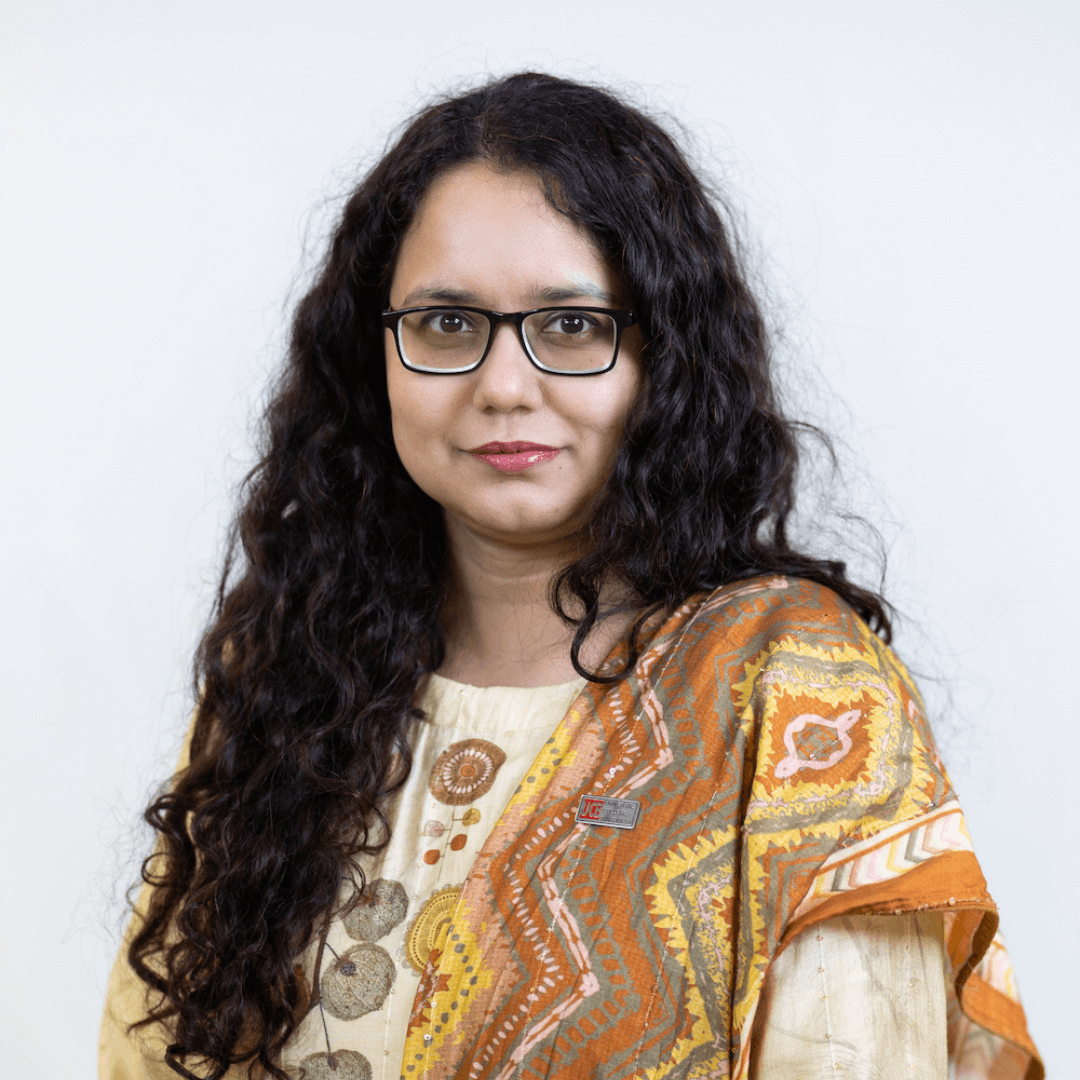
Senior Lecturer

Senior Lecturer
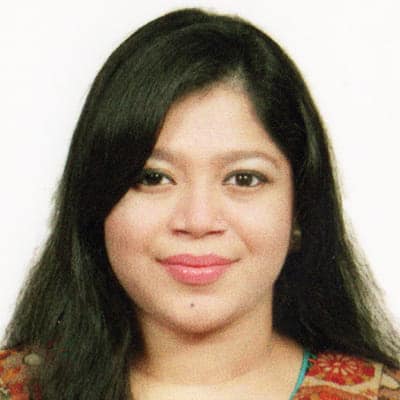

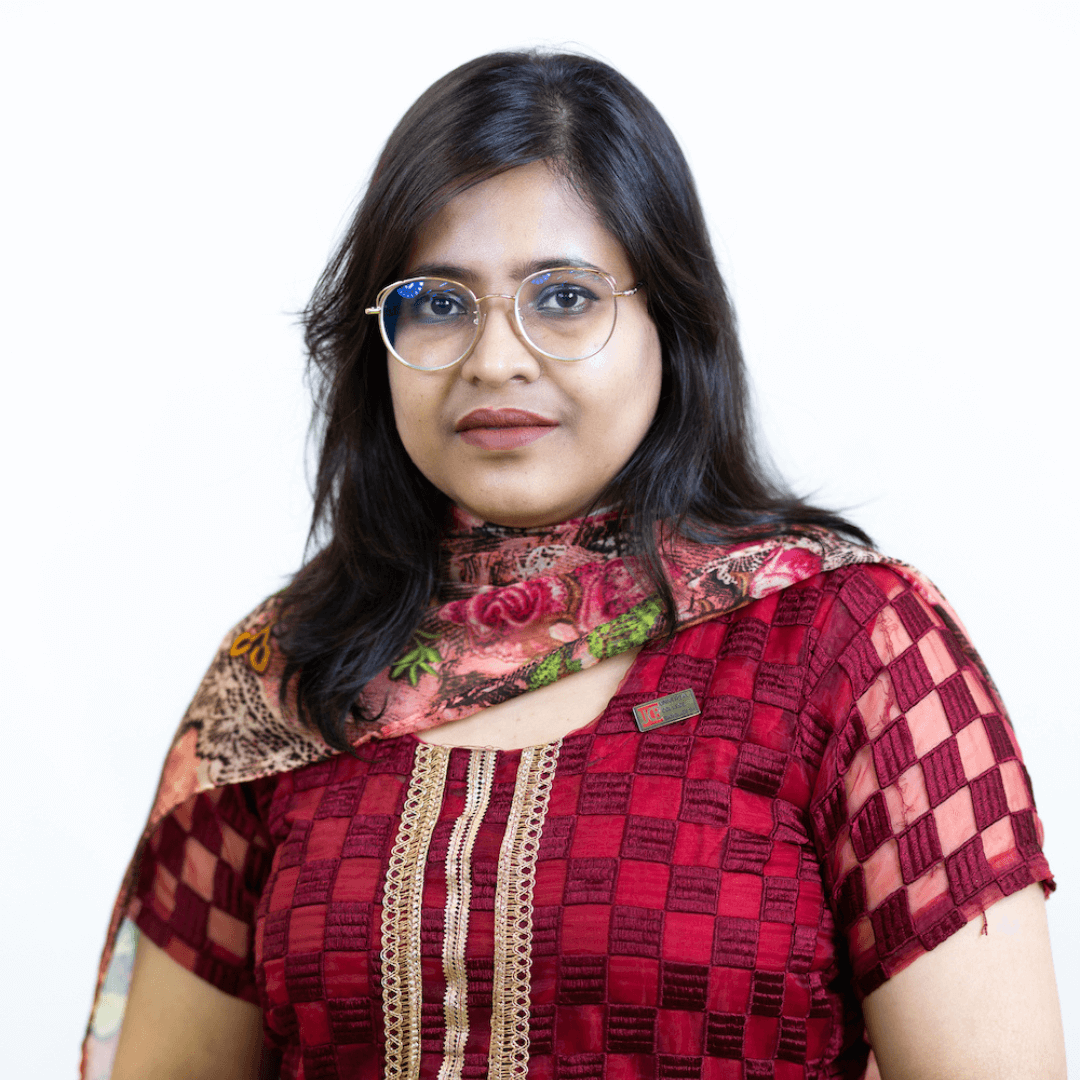
Lecturer
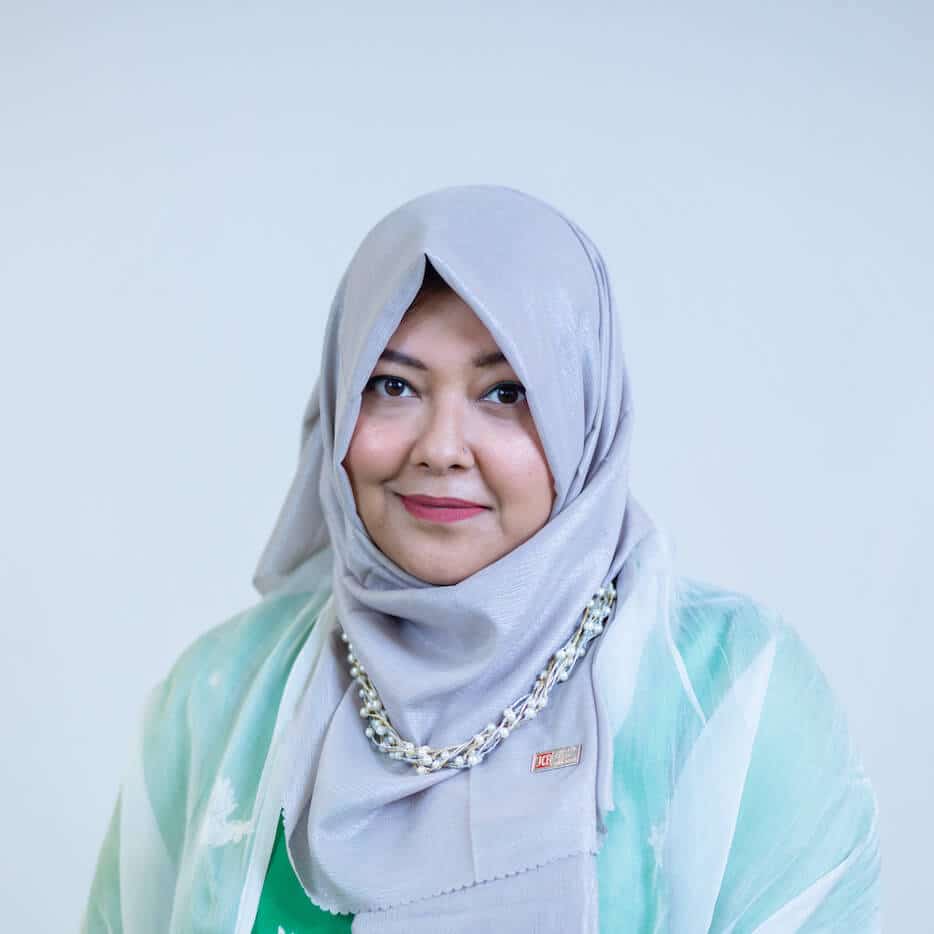
Senior Lecturer

Senior Lecturer
Ms Farin Daula is working as a senior lecturer at UCB. She is a trained education professional from the UK and has a degree in Education and English from University of Surrey, UK. She also holds a Master’s in management from Westminster University, UK. Ms Farin received her teacher training at the department of Continuing Education, University of Oxford, UK. Ms Farin is the founder of the education platform, One Circle. She is a certified mental health first aider and a life coach. She has extensive experience in the life-skills education sector, working in various schools and non-profit organizations in London and Dhaka. She is the author of the Tara and Joy children’s book series. The first book of this series called “Tara and Joy: Body Safety” is available now both in Bengali and English version.
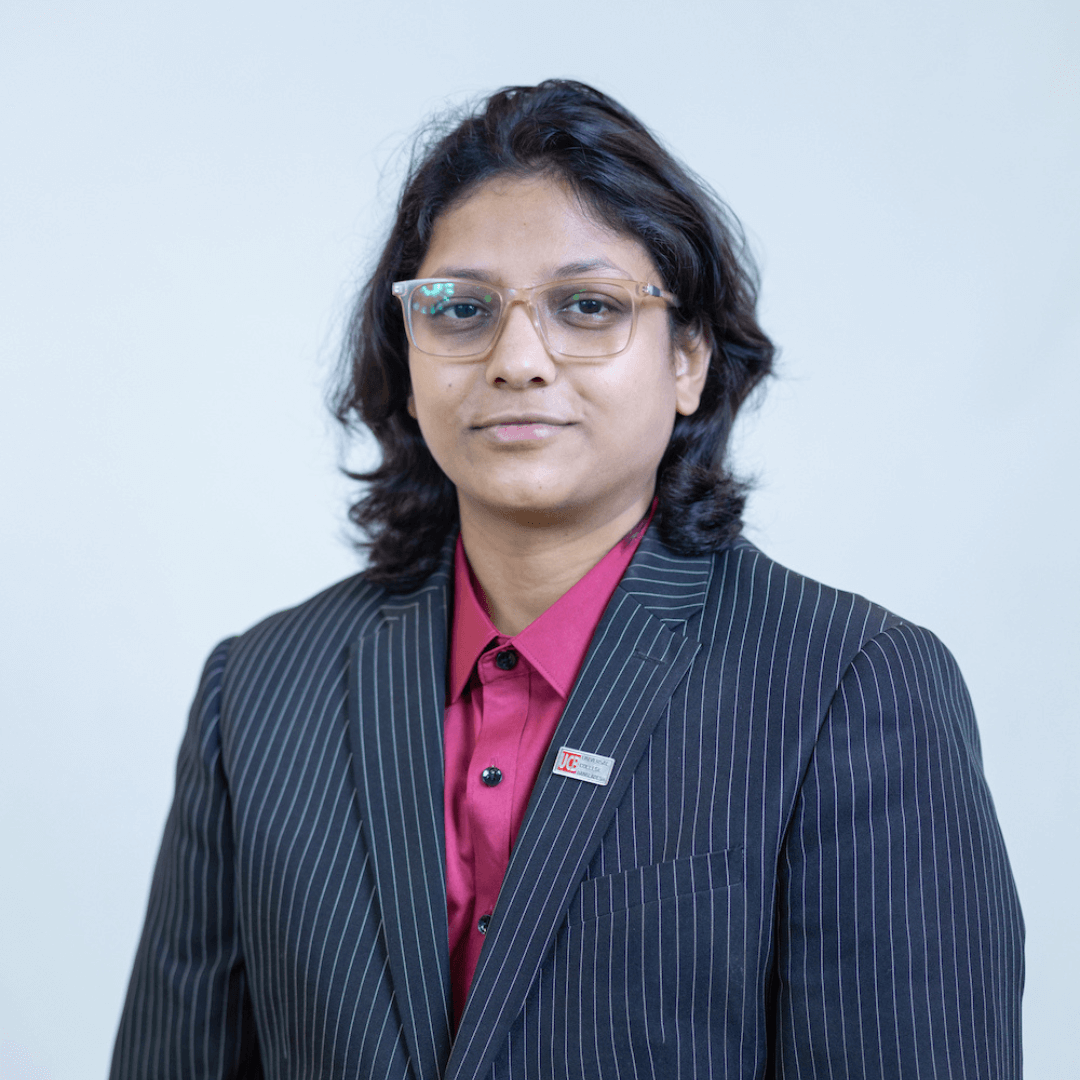
Senior Lecturer
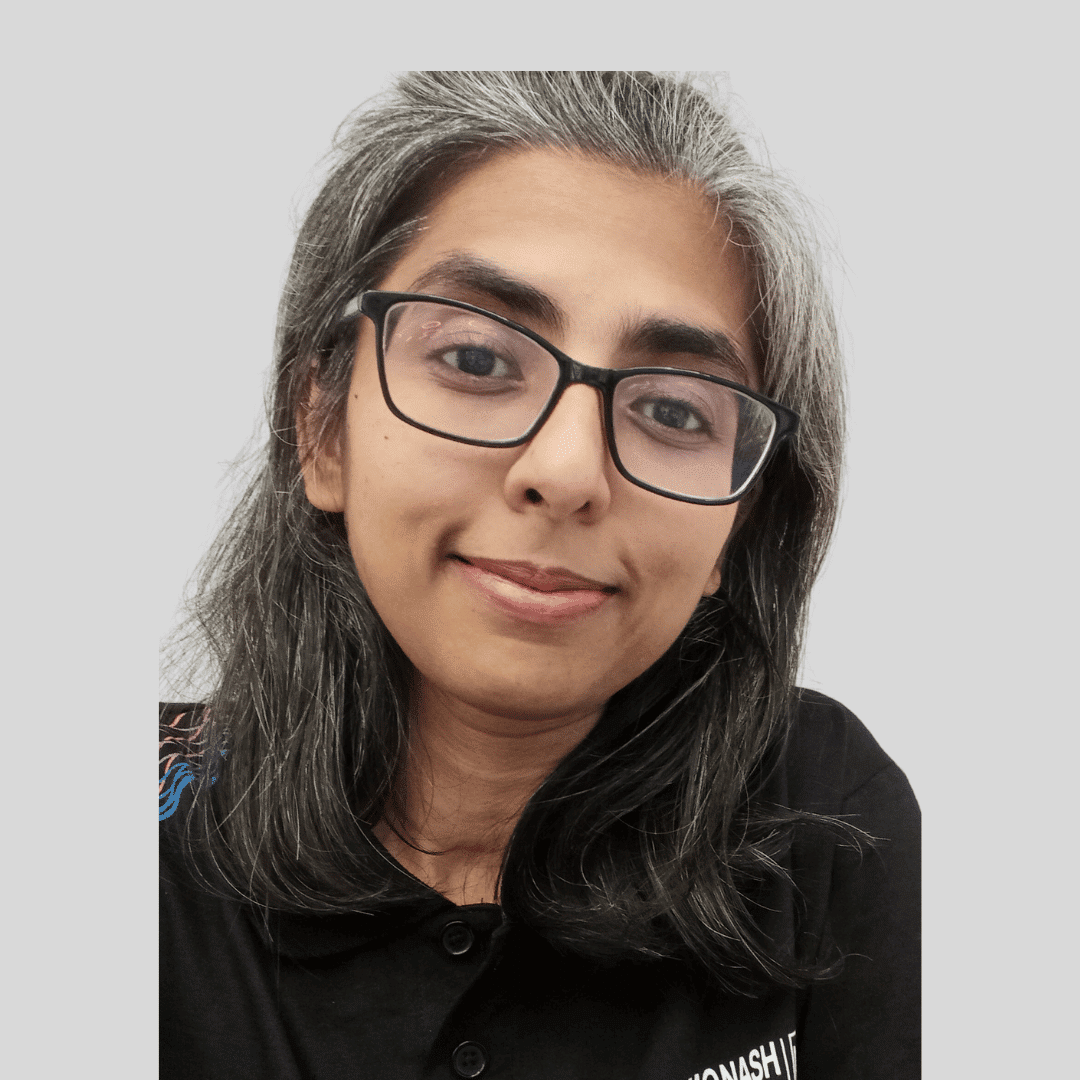
Assistant Professor
Dr. Sadia Afreen is an assistant professor at the Universal College Bangladesh (UCB). She completed BSc in Chemical Engineering from Bangladesh University of Engineering & Technology (BUET). She obtained her PhD from the University of Nottingham and then completed her postdoctoral research at Nanjing University in the field of chemical engineering. Her research expertise is in applied chemistry and nanotechnology. She has significant publications in her areas of research, and she contributed as a journal reviewer to prestigious journals in her fields of expertise. She earned the Postgraduate Student Teachers Certificate during her postgraduate study at the University of Nottingham. She worked in the hall committee, conference committee at the University of Nottingham; teaching and learning subcommittee, and program coordinator in the Monash College MCD program at UCB. She worked in industry and had several engineering and research training at home and abroad.

Professor & Dean of Academic Affairs
